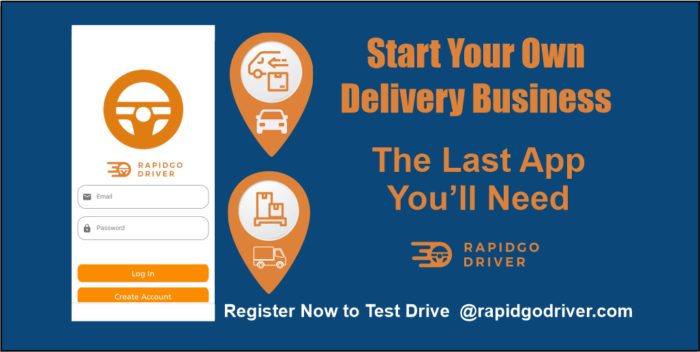Gig Economy Won’t Look After Its Workers
The Gig Economy is a Form of Employment and Service Discrimination
More and more people are turning to freelance gigs as a way to make ends meet, but there are still many obstacles in this industry that need to be addressed. For example, third-party platforms can deny an applicant from using their app if they have any criminal record. So even if candidates are qualified for the job, they are discriminated against.
Delivery drivers for third-party platforms may be deactivated for little to no reason. Too often a single poor rating from a rider or home delivery client can result in the driver losing income capability without notification or recourse.
Uber has been found to discriminate against trans drivers. Racial, gender bias, and disability discrimination have been well documented for both drivers and rideshare passengers.
Discrimination bias extends into the tipping environment as well. Excellent service without incident may elicit significant tipping differences depending on the driver and passenger. As a result, meal delivery drivers make earning decisions based on a pre-described tip bait that can change without notice. Subreddits and Meta pages are loaded daily with drivers being lured to accept deliveries by the tip earnings, only to have it dramatically reduced upon drop-off. The comments typically tell the driver to get used to it.
Tips Around The World: 10 Countries Where You Never Need to Tip
Tipping is a custom that is not observed in some countries. Here are 10 countries where tipping is not the norm.
1) Japan
2) China
3) Sweden
4) Denmark
5) Norway
6) Finland
7) Switzerland
8) Netherlands
9) Australia
10) New Zealand
The Pros and Cons of Not Tipping
Tipping is something that is considered to be a social norm in the United States and Canada, and it’s been around for a long time. Tipping has a history dating back to the civil war days as a method to extend slavery.
Today, people who work in the service industry are often paid less than minimum wage, which can be difficult to live on. Tipping is seen as a way for customers to help make up for low wages and show appreciation but is it respectful.
There are many arguments for not tipping for wait-service or delivery service. Some people believe that tipping should not be expected because the service should already be paid for. Other people believe that tipping shows additional gratitude.
Service providers who receive tips regard their positions as having less worth than minimum wage. They struggle to earn a living wage while having few benefits. In addition, they are often treated with disrespect,
The Problem With Delivery Drivers Being Paid Below Minimum Wage
The problem with delivery drivers being paid below minimum wage is that they are not exempt from the minimum wage law. The company must pay them at least $7.25 per hour for all hours worked, including time spent waiting for deliveries and making deliveries. If a driver does not make at least $7.25 an hour, then the company owes them back pay for any difference between what they made and the federal or state minimum wage, whichever is higher.
The federal minimum wage is $7.25 an hour, but most states require a higher minimum wage. The problem with this is that many restaurants, food, and market delivery services are not paying their servers the minimum wage and instead rely on tips to make up for the difference. Third-party platforms that include tips as part of earnings to the drivers to meet minimum wage requirements offer discount codes to attract customers. The customers then base their tips on the discounted charge, thereby reducing the drivers’ earnings.
A few states have passed laws to help this problem for meal servers by requiring restaurants to pay their waitstaff at least the state’s minimum wage, but many more need to pass similar laws in order for this issue to be solved.
Tip Theft by Businesses Costs Drivers
Third-Party platform, Doordash was required to pay $2.5 million for a tip theft lawsuit. The coffers of tips for big businesses are seen as slush funds to be used at will. Tips are often pooled with inside workers, leaving drivers earning less while having the added vehicle expense. Third-Party platforms are guaranteed to apply administration fees to accept and remit tips to drivers.
Hidden Costs to Drivers
Third-party advocates who offer advice to Doordash delivery drivers and rideshare drivers are quick to promote customer and driver promo codes while they earn hundreds of dollars for each signup. Unwittingly, drivers, desperate for income, use their codes. Perhaps unbeknownst to them, incentives to increase driver signups by third-party platforms impact all driver profits.
The third-party advocate market is flooded with advice along with subtle coercion to signup through their websites, using their promo codes. Often they offer expensive, and outdated courses to explain how to use third-party driver apps. The question becomes, why are drivers exploited by third-party advocates just to learn how to use a third-party app? Exactly, because that’s how they make their money.

What’s the solution?
Customers don’t think twice about tipping a UPS, FedEx, Purolator, or mail person upon delivery? Why, because they know the delivery person is paid an adequate wage. Those drivers are discouraged from eliciting tips and may lose their jobs for doing so. Postal workers are restricted from receiving cash gratuities and have limits placed on gift card gratuity.
It’s time to get back to basics and correct the disrupters in the delivery sector. The simple principle for any delivery is “pick this up here, and take it over there”. The earnings for the driver needs to cover their overheads and allow for a fair and adequate income. The components of the costs to the driver are known, compensation for time, and distance traveled. There is no requirement for customers to pay a third-party platform. There is no need for platform advocate interlopers to muddy the field.
Customers requesting home delivery have choices for who comes to their door, how much they pay for that service, and how simple and secure the process may be. Customers want loyal, local delivery drivers they know and trust. Drivers want their efforts to earn a fair wage.
The solution is simple. Allow the driver to attract their own customers and service them expertly. Allow customers to have direct communication with their favorite drivers for all their delivery requirements with one mobile app. And if the app is decentralized for maximum security and privacy, all the better.
The Rapidgo Driver apps allow exactly that. Simple, safe, convenient, and 15-20% less costly than third-party platforms to the consumer. Drivers set their fees fairly and openly, and collect their earnings directly from the customer.
For support, encouragement, and no-cost training for delivery drivers, ask the driving expert, James how to get started in your own independent delivery driver business and start earning fast: rapidgodriver@gmail.com



